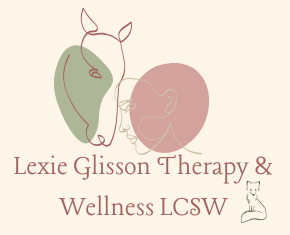As a therapist working primarily with clients aged 15-28, I've witnessed firsthand how traditional therapeutic approaches often miss the mark with Gen Z. This generation faces unique challenges that previous generations never encountered—constant digital connectivity, social media comparison culture, climate anxiety, economic uncertainty, and a world that feels increasingly unstable. They need therapeutic approaches that understand their reality and meet them where they are, not where previous generations were at their age.
What Makes Gen Z Different from Previous Generations?
Gen Z, born roughly between 1997 and 2012, is the first generation to grow up entirely in the digital age. They've never known a world without the internet, smartphones, or social media. This fundamental difference in their developmental environment has created unique psychological patterns, coping mechanisms, and mental health challenges that require specialized understanding.
Key characteristics of Gen Z:
- Digital natives who process information differently
- Highly aware of social justice and global issues
- Entrepreneurial and independent-minded
- Pragmatic about mental health and therapy
- Comfortable with virtual connections but crave authentic relationships
- Overwhelmed by choice and information overload
- Dealing with unprecedented levels of anxiety and depression
Why Is Gen Z's Mental Health Crisis Different?
The Anxiety Epidemic
Gen Z reports higher levels of anxiety than any previous generation. But this isn't just typical teenage worry—it's a complex web of concerns about climate change, school shootings, economic instability, social media pressure, and an uncertain future. Traditional anxiety treatment often focuses on individual coping skills, but Gen Z's anxiety is often rooted in very real systemic issues.
Digital Overwhelm and Attention Challenges
Growing up with constant stimulation has rewired Gen Z's brains in ways we're still understanding. Many struggle with attention regulation, not because they have ADHD, but because their nervous systems are adapted to rapid information processing and constant multitasking. Traditional talk therapy's slow, linear approach can feel frustratingly inadequate.
Identity Formation in the Digital Age
Previous generations formed their identities primarily through family, school, and local community. Gen Z forms identity through global digital communities, online personas, and constant comparison with curated social media content. This creates unique challenges around authenticity, self-worth, and knowing who they really are beneath their digital presence.
How Does Social Media Affect Gen Z's Mental Health?
Social media isn't just a tool for Gen Z—it's a primary social environment. The constant comparison, validation-seeking, and curated perfection of social media creates specific mental health challenges:
The Comparison Trap: Constantly seeing others' highlight reels while living their own behind-the-scenes reality creates persistent feelings of inadequacy.
Validation Addiction: When self-worth becomes tied to likes, comments, and online engagement, young people lose connection to their internal sense of value.
FOMO and Decision Paralysis: Seeing endless possibilities and others' experiences creates fear of missing out and difficulty making decisions about their own lives.
Digital Burnout: The pressure to maintain an online presence while managing real life creates exhaustion that traditional therapy often doesn't address.
What Are Gen Z's Unique Therapy Needs?
They Want Authenticity, Not Authority
Gen Z has grown up questioning authority and seeking authentic voices. They don't want a therapist who sits behind a desk and maintains professional distance—they want someone who shows up as a real human being with their own struggles and growth.
In my practice, I've found that sharing appropriate aspects of my own journey—my struggles with chronic pain, my path to healing through nature and horses—creates the authentic connection Gen Z craves.
They Need Embodied, Not Just Cognitive Approaches
Growing up in digital environments has disconnected many Gen Z individuals from their
bodies. They live primarily in their heads, processing information constantly but often disconnected from physical sensations, emotions, and instincts.
Traditional talk therapy keeps them in their heads. They need approaches that help them reconnect with their bodies—somatic therapy, movement, nature-based interventions, and animal-assisted therapy.
They Crave Real Connection, Not Virtual Relationships
Despite being digital natives, Gen Z is experiencing unprecedented levels of loneliness. They have hundreds of online connections but often lack deep, authentic relationships. They need therapeutic approaches that help them practice real connection.
Working with horses provides this in a unique way—horses respond to authentic energy, not digital personas. They can't be fooled by performance or pretense.
Why Don't Traditional Therapy Methods Work for Gen Z?
The Pace Is Too Slow
Gen Z is used to rapid information processing and quick feedback loops. Traditional therapy's slow, gradual approach can feel frustratingly inadequate when they're used to immediate responses and rapid problem-solving.
It's Too Cognitive
Many Gen Z individuals are already excellent at analyzing their problems. They've researched their symptoms online, read self-help content, and understand their issues intellectually. What they need is embodied healing and practical tools for regulation.
It Doesn't Address Their Reality
Traditional therapy was designed for different generational challenges. It often doesn't address the specific stressors of digital life, climate anxiety, economic uncertainty, or the unique pressures of growing up in the social media age.
It Lacks Innovation
Gen Z values innovation, creativity, and new approaches. Sitting in an office talking about problems can feel outdated when they're used to dynamic, interactive, multimedia experiences.
How Does Nature-Based Therapy Help Gen Z?
Digital Detox and Nervous System Regulation
Spending time in nature naturally regulates the nervous system and provides a break from digital overwhelm. The sounds, smells, and rhythms of nature help reset their overstimulated systems.
Authentic Connection
Nature and animals provide authentic relationship experiences that can't be curated or performed. A horse doesn't care about your Instagram followers—they respond to your genuine energy and presence.
Embodied Learning
Nature-based therapy gets Gen Z out of their heads and into their bodies. Walking, moving, interacting with animals—these activities integrate learning in ways that sitting and talking cannot.
Immediate Feedback
Animals, particularly horses, provide immediate, honest feedback about energy and authenticity. This satisfies Gen Z's need for quick responses while teaching valuable lessons about presence and genuineness.
What Role Do Horses Play in Gen Z Therapy?
Teaching Present-Moment Awareness
Horses live entirely in the present moment—something Gen Z struggles with due to constant digital distraction. Working with horses naturally cultivates mindfulness and presence.
Providing Authentic Relationship
Horses can't be manipulated by social media skills or digital personas. They respond to who you really are, teaching Gen Z about authentic self-expression.
Building Confidence Through Real Achievement
Unlike digital achievements, successfully connecting with a horse provides genuine confidence based on real-world skills and authentic relationship.
Teaching Emotional Regulation
Horses mirror human emotional states, providing immediate feedback about anxiety, depression, or overwhelm. They teach regulation through their own calm, grounded presence.
How Can Parents Support Gen Z's Mental Health?
Understand Their Digital Reality
Don't dismiss social media and digital life as "not real." For Gen Z, online experiences are real experiences with real emotional impact.
Encourage Nature Connection
Support activities that get them outdoors and away from screens—hiking, camping, animal interaction, or nature-based hobbies.
Model Healthy Digital Boundaries
Show them what healthy technology use looks like rather than just criticizing their habits.
Validate Their Concerns
Their anxiety about climate change, social justice, and the future is valid. Don't minimize these concerns or tell them to "just think positive."
Support Professional Help
Be open to non-traditional therapeutic approaches if traditional therapy isn't working. Nature-based therapy, equine-assisted therapy, or somatic approaches might be more effective.
What Should Gen Z Look for in a Therapist?
Someone Who Understands Digital Culture
Your therapist should understand social media, digital relationships, and online culture without dismissing or pathologizing them.
Authentic, Not Performative
Look for therapists who show up as real humans, not distant professionals. You should feel
like you're talking to someone genuine.
Innovative Approaches
Consider therapists who offer nature-based therapy, animal-assisted therapy, somatic approaches, or other innovative modalities.
Collaborative Style
Gen Z values collaboration over authority. Look for therapists who work with you as a partner rather than treating you as a patient to be fixed.
Understanding of Your Generation's Challenges
Your therapist should understand climate anxiety, social media pressure, economic uncertainty, and other Gen Z-specific stressors.
How Do I Know If I Need Different Therapy?
You might benefit from alternative therapeutic approaches if:
- Traditional talk therapy feels too slow or ineffective
- You feel disconnected from your body or emotions
- You crave more authentic, less clinical relationships
- You're dealing with digital overwhelm or social media anxiety
- You feel drawn to nature or animals
- You want more active, engaging therapeutic experiences
- You feel like your therapist doesn't understand your generation's challenges
The Future of Mental Health for Gen Z
Gen Z is reshaping mental health care by demanding approaches that meet their unique needs. They're more open to therapy than previous generations but less willing to accept outdated methods that don't address their reality.
The future of mental health for Gen Z includes:
- Integration of technology and nature-based approaches
- More embodied, somatic interventions
- Authentic, collaborative therapeutic relationships
- Recognition of systemic issues affecting mental health
- Innovative modalities like equine-assisted therapy
- Focus on building real-world connection and community
Finding Your Path to Healing
If traditional therapy hasn’t felt right, know that you’re not broken. You just need a different approach. Your generation’s challenges are real and deserve solutions that fit. Whether that’s equine therapy, time in nature, EMDR, or working with someone who understands your digital world, there are ways to heal that feel authentic and effective.
I work with Gen Z clients in Boulder, Golden, and Denver
as a Licensed Clinical Social Worker (LCSW) and Certified Equus Coach, offering nature-based and innovative therapy designed for the realities of the digital age. If you’re ready to begin,
contact me today to explore an approach that reconnects you to your authentic self and supports your healing.










